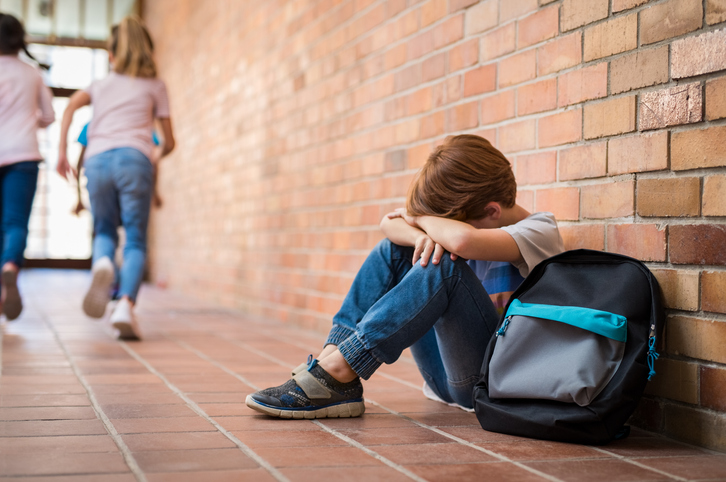My 12-year-old son is getting bullied in school. He is not very athletic or popular but excels in his classes and band. But I’m worried. He complains he is sick more and wants to stay home instead of going to class. I think he is depressed. Some of the bullying may be going on via social media – I follow his Instagram accounts and I’m angered by some of the comments kids leave there. Should I confront these children and their parents? I know some of them personally. Or should I work through the school? I’m just tired of seeing him mope and be so unhappy.” – Concerned Mom in Maryland
Dear Mom in Maryland:
According to the American Psychological Association, bullying is a form of aggressive behavior in which someone intentionally and repeatedly causes another person injury or discomfort and can take the form of physical contact, words or more subtle actions. According to federal statistics from the Centers for Disease Control and Prevention, bullying is an issue that impacts approximately 20% of kids aged 12-18 years.
It’s a natural reaction for parents to want to protect their kids from the repeated harsh words and actions of their peers. No parent wishes for their child to feel hurt, intimidated, and ostracized by kids they have to share a bus, class, cafeteria, or playground. Although the initial reaction of any parent may be one of anger and impulsiveness to confront the “bully” and/or parents in defense of your child, it is important to remember that parents model behaviors to their children. Confronting the child or parent increases the risk of inadvertently reinforcing aggression.
Confrontation may not be the answer but constructive conversation and education are appropriate alternatives. It’s also a good, helpful choice to address the concern with school leadership, particularly if the bullying occurs during school hours. A viable solution may be to partner with the school to address bullying with other parents. This increases collaboration and accountability.
Arguably, the most effective response is to openly discuss the incident(s) with your child. Some considerations when doing so are:
1. Validate how they are made to feel by the bullying.
2. Listen to what they have to say and listen often.
3. Encourage your child to identify an adult at school they trust to report incidents.
4. Discuss your family’s response to how your child is made to feel with your child. Acknowledge your own feelings of anger, fear or helplessness.
5. Find the right words: “I’m sorry, It can be hard to understand why these things happen”, “No, it’s not fair”, “This is a really hard time for you”, “I’m ready to listen if you feel like talking”, “I can’t begin to understand how you’re feeling”, “How can I help?”
6. Educate your child on the tenets of bullying: what it is intended to do and protective factors
7. Identify community supports for your child and/or your family
Lastly, give plenty of hugs to demonstrate to your child that they are loved.
Sincerely,
Brenda Wade
 National Association of Social Workers member Brenda Wade, CSSW, LCSW-C, is a licensed certified clinical social worker with more than 20 years experience working in schools, community-based organizations, and non-profit organizations. She has served as professor of social work at Morgan State University and currently consults with various organizations on issues relating to diversity and inclusion, school communities, and organizational development.
National Association of Social Workers member Brenda Wade, CSSW, LCSW-C, is a licensed certified clinical social worker with more than 20 years experience working in schools, community-based organizations, and non-profit organizations. She has served as professor of social work at Morgan State University and currently consults with various organizations on issues relating to diversity and inclusion, school communities, and organizational development.





